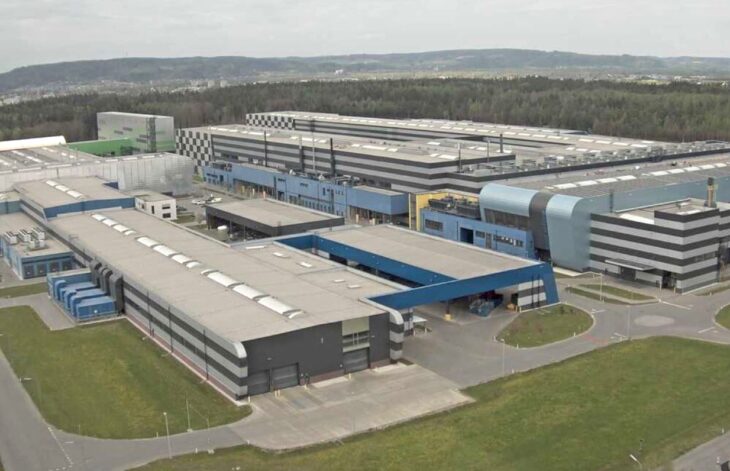AMAG Austria Metall AG began construction of a rooftop photovoltaic system, which will be installed on its new rolling mill in Ranshofen, Austria. When completed, the new system will cover around 55,000 sq m (roughly eight soccer fields) and will generate around 6.7 GWh of electricity per year — making it the largest rooftop photovoltaic system in Austria. This corresponds to the electricity consumption of around 1,700 households and will be used exclusively for AMAG’s own needs.
“We are delighted to be taking another step forward in the consistent implementation of our sustainability program and the reduction of specific CO2 emissions by installing this large-scale PV system on our rooftops,” said Gerald Mayer, CEO of AMAG Austria Metall AG. “At the same time, this major project represents an important contribution to climate neutrality in the field of power generation.”
In addition to the new rooftop system, the company will also install a free-standing photovoltaic system over an area of 2,600 sq m. Together, the two solar power systems will provide a total output of 6.9 MW peak and generate 6.7 GWh of electricity per year.
The project is expected to be completed in the second half of 2021.
Sustainability Strategy
AMAG has a clear strategic focus on innovative products and sustainable production methods. Additional measures include the implementation of a heat recovery system for heating the buildings on the site (installed about four years ago) and the development of systems for the economical and efficient use of resources along the value chain.
Recently, the company signed a supply contract with Audi Hungaria Zrt, through which they would cooperate on closed-loop recycling. Through the agreement, production waste generated at the Audi plant in Györ, Hungary, will be delivered to AMAG in Ranshofen in the form of sorted aluminum sheet scrap. AMAG then recycles the scrap into new aluminum sheet, leading to a closed material cycle that conserves valuable resources and saves energy.
“Recycling is one of AMAG’s core competencies,” noted Mayer. “The closed-loop concept is an effective and sustainable recycling concept that goes beyond our corporate boundaries. Many years of experience, our know-how and the use of state-of-the-art recycling technology allow us to provide our customers with the best possible support in terms of CO2-optimized products and processes.”

AMAG’s integrated approach to sustainability has been confirmed by external certifications. The company achieved the Aluminum Stewardship Initiative (ASI) Performance and Chain of Custody Standards in 2020, highlighting the company’s commitment to environmental, social and governance principles. In this context, recycling, the circular economy, and energy efficiency all play an essential role at the Ranshofen site.
In December 2020, AMAG was also awarded “Gold Star” certification for its sustainability performance by EcoVadis, an independent, internationally recognized sustainability and CSR assessment platform. The rating is based on an assessment of 21 criteria in four categories: environment, ethics, labor and human rights, and sustainable procurement. AMAG scored 69 points in total, placing it in the top 2% of all evaluated companies in the precious metals and other non-ferrous metals category.
“Verifiable sustainability is a pivotal element of our corporate strategy and also plays an important role for our customers,” said Mayer. “This result shows that we don’t just pay lip service to sustainability, but factor it into all our processes. It reaffirms our continued and systematic commitment to our sustainability strategy.”

